Find Help
More Items From Ergsy search
-
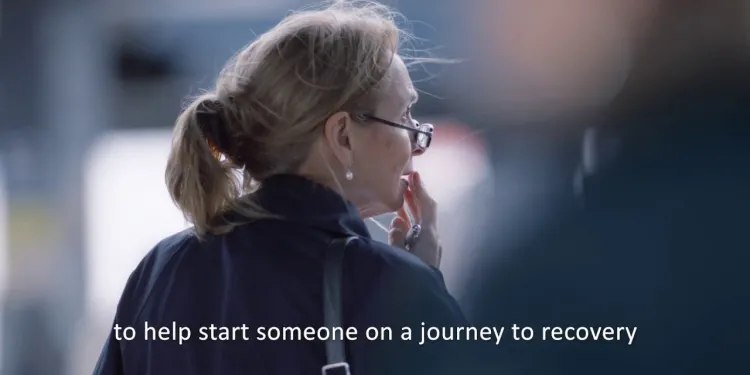
Small Talk Saves Lives
Relevance: 100%
-
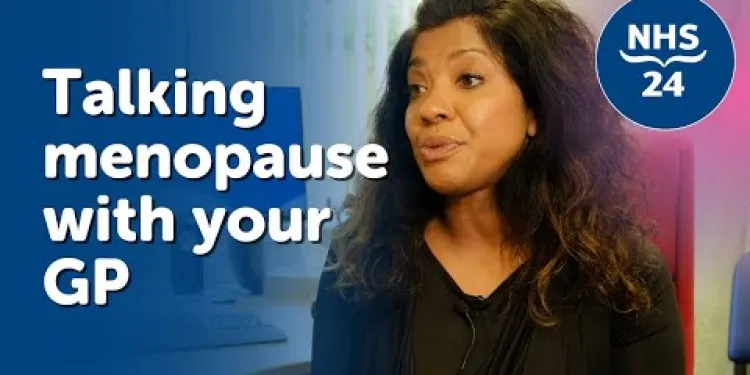
Talking menopause with your GP
Relevance: 28%
-
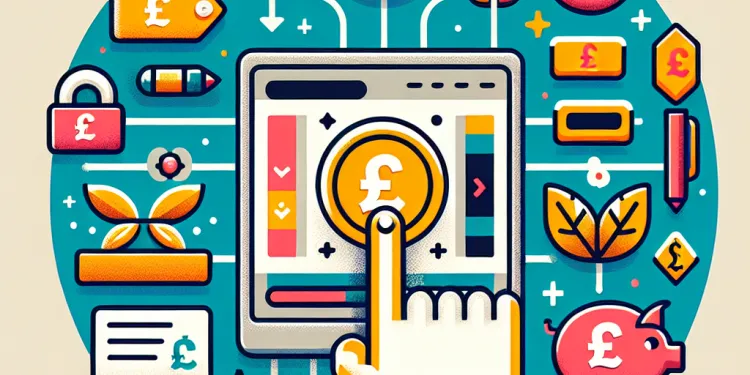
Will personal savings allowances be updated in 2026?
Relevance: 27%
-
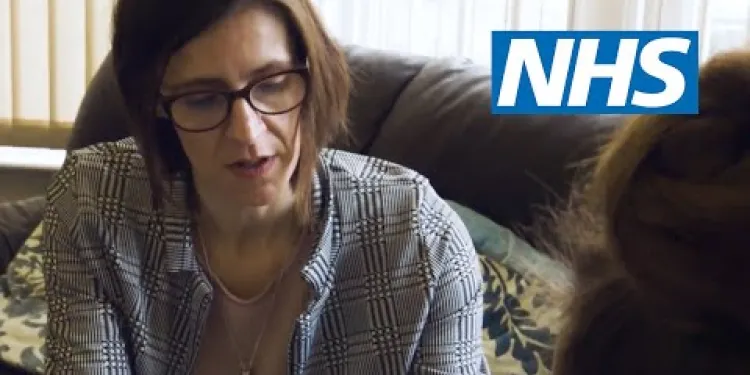
Talking about self-harm | NHS
Relevance: 27%
-
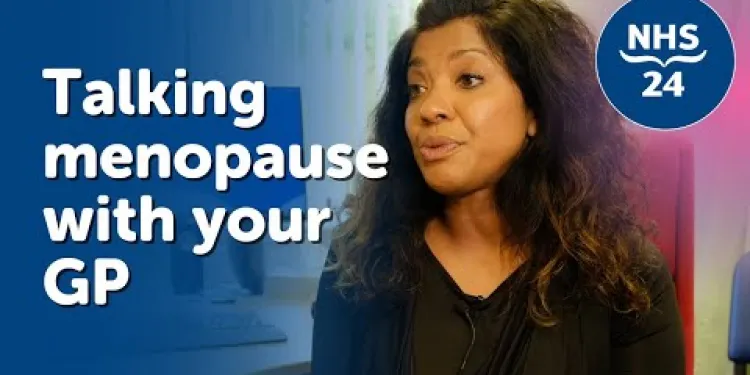
Talking menopause with your GP
Relevance: 26%
-
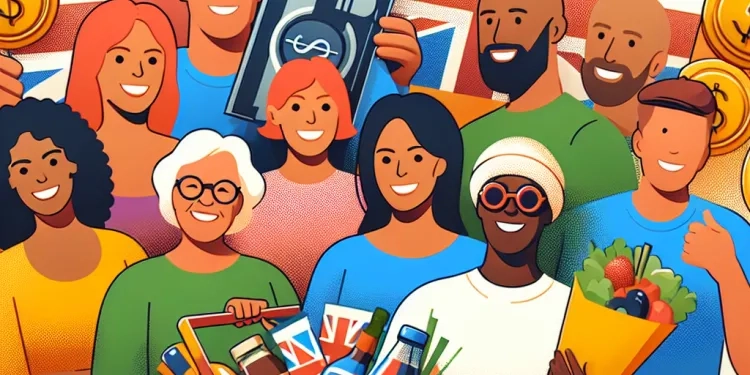
Rising Cost of Living: How Families Can Cope
Relevance: 26%
-
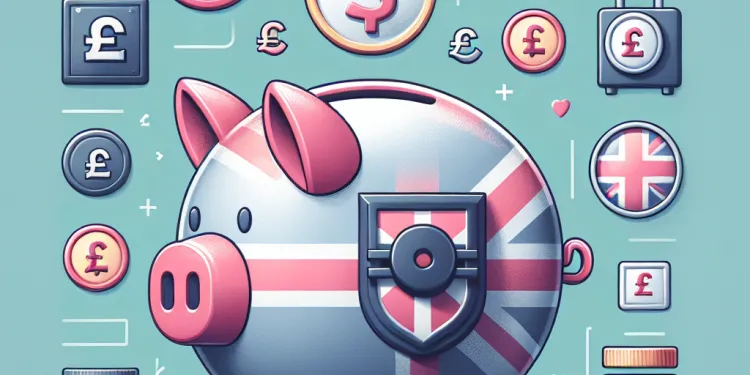
How can individuals protect their retirement savings?
Relevance: 25%
-

What is the Small Business Administration (SBA)?
Relevance: 25%
-

Should I switch my savings account, checking account, or both?
Relevance: 25%
-

How important is it to talk to children about their online interactions?
Relevance: 25%
-
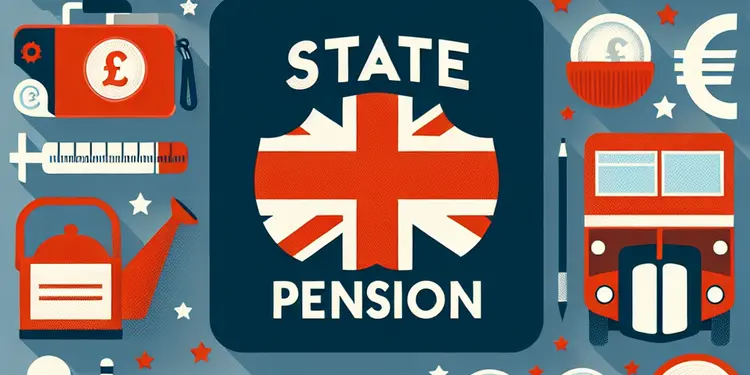
Is the basic State Pension enough to live on?
Relevance: 25%
-

Can I save money by switching my bank?
Relevance: 25%
-

Can I save money by switching my bank?
Relevance: 25%
-

Is the HMRC Employer Bulletin relevant for small businesses?
Relevance: 24%
-
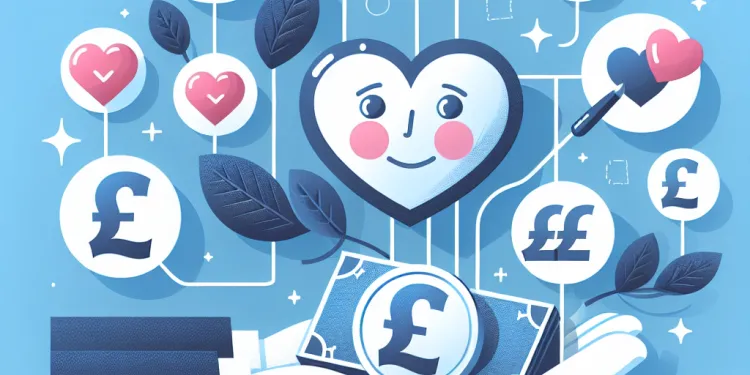
How do I talk to my partner about how I’m feeling?
Relevance: 24%
-

Can I save money by switching my bank?
Relevance: 24%
-

How do better interest rates help me save money?
Relevance: 24%
-
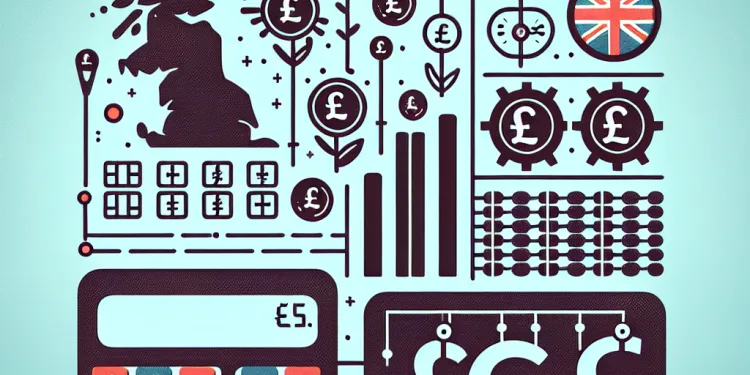
How is the National Living Wage calculated?
Relevance: 24%
-

How do better interest rates help me save money?
Relevance: 24%
-

Talking therapy 'should be offered before pills' for people with insomnia | NHS Behind the Headlines
Relevance: 24%
-

Does the sugar tax apply to small businesses?
Relevance: 24%
-

What types of government support are available for small businesses?
Relevance: 24%
-
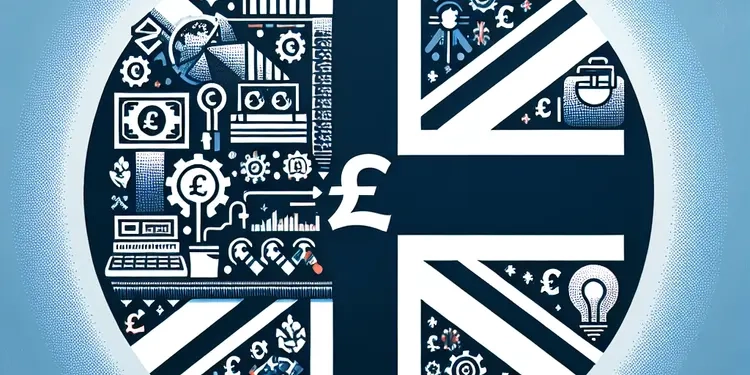
How can I get government support for my small business?
Relevance: 23%
-

How do I apply for a small business loan through a government program?
Relevance: 23%
-

What is the eligibility criteria for government small business grants?
Relevance: 23%
-

What is the new UK National Living Wage for 2026?
Relevance: 23%
-
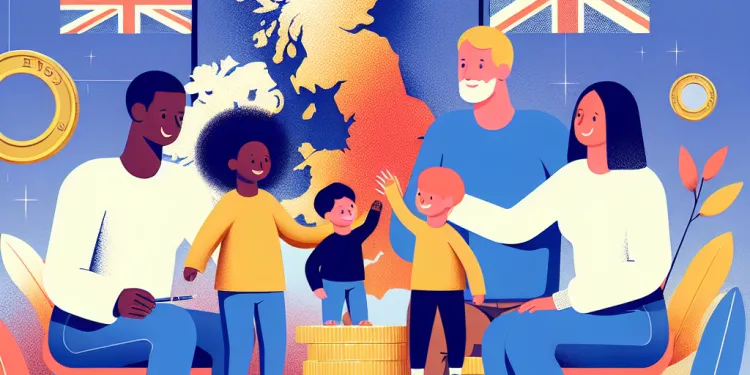
Navigating the UK Cost of Living Crisis: Tips for Families
Relevance: 23%
-
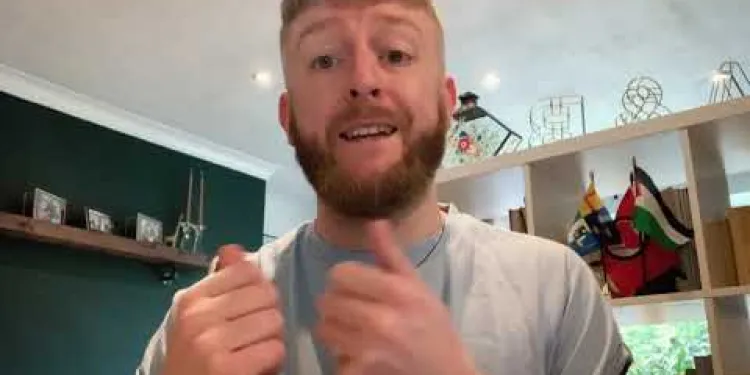
Living with Bipolar Disorder
Relevance: 23%
-

Impact of Cost of Living on UK Communities
Relevance: 22%
-

Understanding the Impact of Rising Living Costs on Family Welfare
Relevance: 22%
-

Are there government grants available for starting a small business?
Relevance: 22%
-

Essential Tips for Mental Health and Well-Being Amidst Rising Living Costs
Relevance: 22%
-

Should I switch my savings account, checking account, or both?
Relevance: 22%
-

What should I consider when switching banks to save money?
Relevance: 22%
-
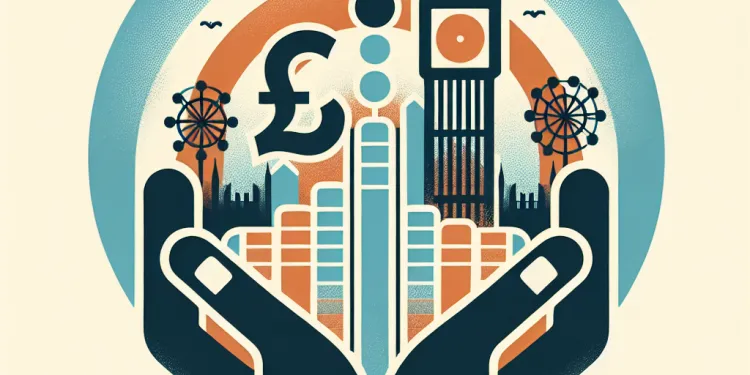
Why is the National Living Wage being increased?
Relevance: 22%
-

What should I consider when switching banks to save money?
Relevance: 22%
-
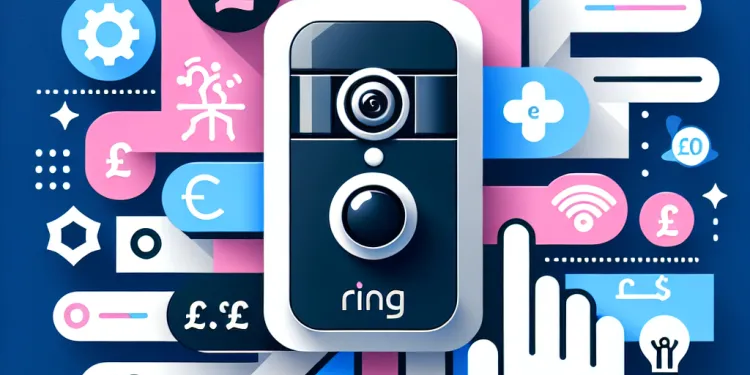
Can I talk to visitors using a Ring Doorbell Camera?
Relevance: 22%
-

Where can I find information on government support programs for small businesses?
Relevance: 22%
-
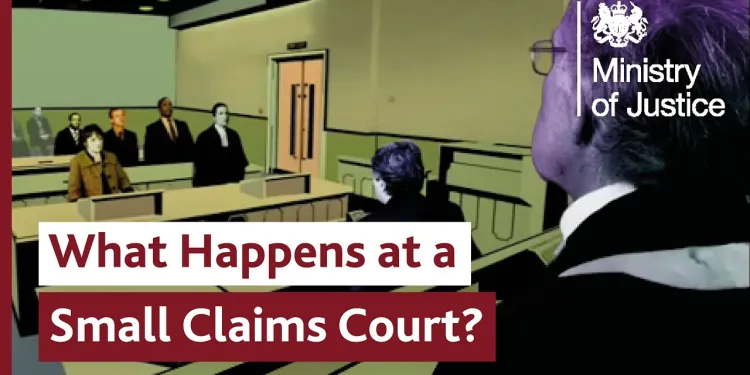
What Happens at Small Claims Court? Making a Court Claim for Money
Relevance: 22%
-
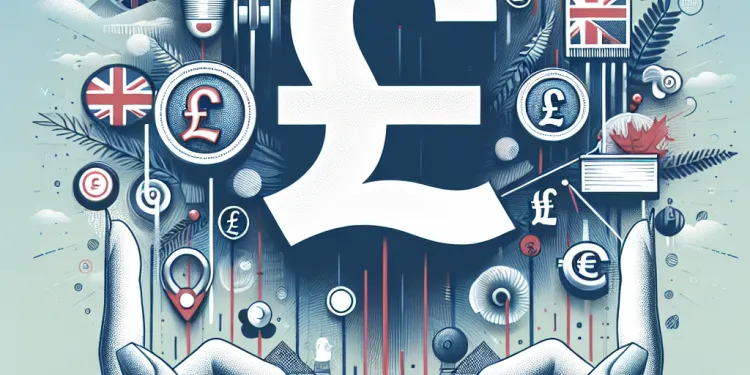
UK national living wage increase 2026
Relevance: 22%
Small Talk Saves Lives
The Power of a Simple Conversation
Small talk can be much more than a casual exchange of words; it can be a lifeline. Initiated by Samaritans and other mental health organisations in the United Kingdom, the "Small Talk Saves Lives" campaign emphasises how brief interactions can significantly impact someone's life. In settings such as railway stations, parks, and even on social media, a few moments of engagement can make a world of difference, helping someone in distress feel less isolated and more supported.
Recognising the Signs
Knowing what to look for is essential. People in distress may appear withdrawn, agitated, or lost in thought. They might be alone in secluded or public spaces for extended periods. Physical signs could include neglected personal appearance or signs of stress and fatigue. Trusting your instincts can be crucial. If someone looks like they might need help, a simple "Hello, how are you?" could break the ice and potentially save a life.
Approaching with Empathy
The idea of approaching a stranger may seem daunting, but it’s important to remember that your words can offer a lifeline. Speak softly and kindly, maintaining a non-threatening demeanor. Open-ended questions such as, "Is everything okay?" or comments like, "It looks like a tough day," can help initiate a conversation. Your display of concern could encourage them to share what they're going through.
Resources and Training
In the UK, several resources are available to help you become more comfortable with initiating such conversations. Samaritans offer various training programs and literature, teaching effective listening and communication techniques. Mental health first aid courses also provide valuable skills for recognising and supporting those in distress. Being prepared can boost your confidence and ability to help others.
Community and Collective Responsibility
A culture of awareness and compassion is critical for making "Small Talk Saves Lives" successful. Encouraging community conversations about mental health can dismantle the stigmas attached to it. Schools, workplaces, and local organisations can foster supportive environments by promoting the importance of small talk and mental well-being. Collective responsibility ensures we all play a role in safeguarding each other's mental health.
In summary, the importance of small talk in potentially saving lives cannot be overstated. By honing our observation skills, approaching with empathy, and leveraging available resources, we can create a supportive and caring community. Each conversation is a step towards a safer, more empathetic society.
Small Talk Saves Lives
The Power of a Simple Conversation
Talking to someone for a short time can do a lot of good. It can help save a life. There is a campaign by a group called Samaritans in the UK called "Small Talk Saves Lives". This campaign shows us how a small chat can help someone feel better. When we talk to people in places like train stations, parks, or online, we help them feel less alone and more supported.
Recognising the Signs
It is important to know what to look out for. Some people in distress might look upset or very quiet. They might sit alone for a long time. They might not look after themselves well or look very tired and stressed. If you think someone looks like they need help, saying something like "Hello, how are you?" can make a big difference.
Approaching with Empathy
Talking to someone you don't know might feel scary. But remember, your words can help them. Speak softly and kindly. You can ask questions like, "Is everything okay?" or say, "It looks like a tough day." Showing that you care might make them feel better and more open to talk.
Resources and Training
In the UK, there are many ways to learn how to start these conversations. Samaritans have training programs that show you how to listen and talk with people. There are also courses like mental health first aid that teach you how to see when someone needs help. Learning these skills can make you feel ready to help others.
Community and Collective Responsibility
It's important for everyone to care about talking and helping others. Schools, workplaces, and local groups can help by talking more about mental health. When we all care, we create a safe environment for everyone. We all have a role in keeping each other safe and happy.
To sum up, small talks can really help save lives. When we learn to notice when someone needs help, talk with kindness, and use available resources, we build a caring community. Each small talk helps us move towards a safer, more understanding world.
Frequently Asked Questions
What is 'Small Talk Saves Lives'?
'Small Talk Saves Lives' is a public awareness campaign launched by the Samaritans, British Transport Police, and Network Rail. It encourages people to trust their instincts and start a conversation if they think someone is at risk of suicide in a public place.
Why should I get involved in the 'Small Talk Saves Lives' campaign?
By getting involved, you can help save lives. Sometimes a simple 'hello' can interrupt someone's suicidal thoughts and make them feel less isolated, eventually encouraging them to seek professional help.
How can small talk really save someone's life?
Small talk can create a momentary distraction or change in perspective. It helps break the pattern of suicidal thoughts and opens up the possibility for further help and support.
What should I say to someone who seems distressed in public?
You don't need to say anything complicated. A simple hello or asking if they need help finding something can be enough to show you care and are concerned.
Is it safe to approach someone who looks suicidal?
Yes, it is generally safe. Trust your instincts and ensure your own safety first. If the situation feels dangerous, contact the authorities instead.
What should I do if the person gets upset when I approach them?
If the person gets upset, remain calm, apologise, and give them space. Your intention is to show care, not to escalate the situation. If you remain concerned, call for professional help.
Can I help even if I don’t know the person?
Absolutely. The campaign is centered around the idea that anyone can help. You don’t need to know someone personally to show you care.
What if I say the wrong thing?
There’s no perfect script. Genuine concern tends to shine through. The most important thing is to show empathy and to be there for the person. Even awkward small talk is better than doing nothing.
How do I know if someone is at risk of suicide?
Common signs can include appearing withdrawn, agitated, or distressed. They might linger in risky places like on the edge of a train platform for a prolonged period. Trust your instincts if you feel something is not right.
Who do I contact if I need help while trying to assist someone in distress?
You can contact the British Transport Police by texting 61016 or calling 0800 40 50 40. In an emergency, always call 999.
Are there training resources available for 'Small Talk Saves Lives'?
Yes, the Samaritans and associated partners offer resources, including training materials and guides on how to have conversations that can help those in need.
What should I do after speaking to someone who seems suicidal?
After the conversation, it’s important to report the incident to a member of staff or the authorities. They can ensure the person receives ongoing assistance.
How can I support 'Small Talk Saves Lives' if I don’t feel comfortable approaching people?
You can support the campaign by spreading awareness through social media, joining local events, and donating to organizations involved such as the Samaritans.
Is 'Small Talk Saves Lives' specific to the rail industry?
While it has strong ties to the rail industry due to its partnership with Network Rail and the British Transport Police, the principles can be applied in many public places.
How can I learn more about 'Small Talk Saves Lives'?
You can learn more by visiting the Samaritans website, checking out their resources, and following their social media channels for updates and stories.
What Does 'Small Talk Saves Lives' Mean?
'Small Talk Saves Lives' is a plan that tells us how a little chat can help someone who feels very sad or alone. A friendly smile or a simple "hello" can make a person feel better.
If you want to learn more or need help, you can use apps, talk to a helper, or even watch videos. These tools can give ideas on how to start a talk.
'Small Talk Saves Lives' is a campaign to help people. It was started by the Samaritans, British Transport Police, and Network Rail. The campaign tells people to trust their feelings. If you think someone might need help in a public place, try talking to them.
Why Should I Join the 'Small Talk Saves Lives' Campaign?
The 'Small Talk Saves Lives' campaign is important. It helps people feel better and safer. Here is why you should join:
- Help Others: Talking to people can make them happy. Sometimes a small chat can save a life.
- Feel Good: Helping others can also make you feel good inside.
- Easy to Do: You can make a big difference with just a few kind words.
You can ask someone how they are or say hello. Use tools like picture stories or videos to learn more about how to help. Practice with friends or family.
If you join in, you can help save lives. Just saying 'hello' to someone can stop their sad thoughts and make them feel less alone. This can help them decide to talk to a doctor or counselor.
How can talking help someone feel better?
Sometimes, just a little chat can really help a person. If someone feels sad or lonely, talking can make them feel happier. Even small conversations show we care. It's good to ask people how they are doing.
If you want to help someone, you can:
- Say hello and smile.
- Ask if they're okay.
- Listen to them if they want to talk.
Remember, being friendly and kind can help a lot!
Talking about simple things can help you feel better for a little while. It can change how you think. Simple talk can stop sad thoughts and help you get more help and support.
What Can I Say if Someone Looks Upset?
If you see someone who looks upset, you can try to help. Here are some simple things you can say:
- "Are you okay?"
- "Can I help you?"
- "Do you want to talk?"
Remember to be kind and speak softly.
If you want some help when talking, you can:
- Ask a friend to go with you.
- Use simple words.
- Look for a safe place to talk.
If the person needs more help, tell a grown-up or call someone who can help, like a teacher or police officer.
You don't need to use big words. Just saying "hello" or asking if they need help finding something can show you care about them.
Is it safe to talk to someone who looks very sad and might hurt themselves?
If you see someone who seems very upset and might hurt themselves, it is okay to talk to them. You can ask if they are okay and try to be kind and listen. Here are some simple steps you can follow:
- Ask them how they are feeling.
- Listen carefully to what they say.
- Tell them you care and want to help.
- Get help from an adult or someone who knows what to do, like calling a help line.
Remember, you are not alone in helping. There are people who can support you and the person you are worried about.
Yes, it is usually safe. Listen to your feelings and make sure you stay safe. If something feels dangerous, call the police for help.
What can I do if someone gets upset when I come near them?
Sometimes, people can feel upset. Here is what you can try:
- Stay calm and take a deep breath.
- Give them some space if they need it.
- Speak gently and say, "I want to help you."
- Listen to what they have to say.
- If you need help, ask someone you trust.
If someone gets upset, stay calm. Say sorry, and give them space. You want to show you care, not make things worse. If you are still worried, ask a professional for help.
Can I help if I don't know the person?
Yes, you can help even if you don't know the person. Doing something kind for someone is good. You can ask if they need help. A warm smile can also make someone feel better. Here are some ways you can help:
- Ask if they need any help.
- Listen if they want to talk.
- Give a friendly smile.
- Share what you can, like a snack or toy.
If you are not sure what to do, it's okay to ask a grown-up. They can give you good ideas on how to help.
Yes, you can help! The campaign is all about showing that anyone can make a difference. You don’t have to know someone to show you care about them.
What if I say something wrong?
It's okay to make mistakes. Everyone does! If you say something wrong, you can say sorry. You can also try to learn from it.
Here are some tips to help:
- Take a deep breath and stay calm.
- Think about what you want to say before speaking.
- Ask for help if you're not sure what to say.
Remember, it's good to try and be better each time!
No script is perfect. What really matters is to show you care. The best thing you can do is be kind and listen to the person. Even if talking feels a bit awkward, it is still better than saying nothing at all.
How can I tell if someone might want to hurt themselves?
Here are some signs that someone might be thinking about hurting themselves:
- They talk about wanting to hurt themselves or not wanting to live.
- They seem very sad or worried all the time.
- They stop doing things they used to enjoy.
- They give away things they care about.
- They start saying goodbye to people.
If you think someone needs help:
- Talk to them and listen carefully to how they feel.
- Encourage them to talk to a grown-up or a trusted person who can help.
- Tell a teacher, parent, or someone you trust about your worry.
Remember, you are not alone, and there are people who can help.
Look for signs that someone might need help. They might look sad, upset, or worried. They could stand too close to the edge of a train station for a long time. If you feel something is wrong, trust yourself.
Who should I call if I need help helping someone in trouble?
If you are helping someone who is upset or in danger, you might need help too. Here are some tips:
- Call a friend or family member. You can ask someone you trust for help. Tell them what is happening.
- Talk to a teacher or counselor. They can give you advice on what to do.
- Call emergency services. If someone is in danger, you can call emergency services like the police or an ambulance. Dial 911 or the emergency number for your country.
Remember, asking for help is okay. You do not have to do it all alone.
You can talk to the British Transport Police by sending a text to 61016 or by calling this number: 0800 40 50 40. If there is an emergency, always call 999.
Can I learn about 'Small Talk Saves Lives'?
Yes, there are ways to learn about it!
You can find training to help you understand and talk about 'Small Talk Saves Lives'.
Here are some things you can do:
- Watch videos that show you what to do.
- Join a class where someone can help you learn.
- Use apps or tools that guide you step by step.
These can help you talk with people who need help.
Yes, the Samaritans and their friends have helpful things, like training books and guides. These can show you how to talk in a way that helps people who need it.
What do I do if someone wants to hurt themselves?
If someone tells you they want to hurt themselves, it's important to listen and be kind. Tell a grown-up you trust so they can help.
Here are some things you can do:
- Talk to a teacher, parent, or adult you trust.
- Share your feelings. It's okay to feel worried or scared.
- Use a phone to call a help line. They can give advice.
Remember, you are not alone. Grown-ups and friends can help you and the person who is sad.
After talking, it is important to tell a staff member or the police about what happened. They can make sure the person gets help.
How can I help with 'Small Talk Saves Lives' if I am shy?
Sometimes, it can be hard to talk to people. That is okay. You can still help. Here are some ways:
- Share Information: Tell your friends and family about 'Small Talk Saves Lives'. You can do this on social media or by talking to them.
- Wear a Badge: Put on a 'Small Talk Saves Lives' badge. This shows you care.
- Be a Good Listener: If someone talks to you, listen carefully. This can help more than you know.
- Learn More: Visit the 'Small Talk Saves Lives' website. Learn what to do if someone needs help.
- Donate: Give money to support the cause. Your help can make a big difference.
Remember, you doing something small can help a lot!
You can help the campaign. You can talk about it online, go to events in your area, and give money to groups like the Samaritans that are helping.
Is 'Small Talk Saves Lives' only about trains?
This question asks if the idea 'Small Talk Saves Lives' is just for trains and train stations. The goal of 'Small Talk Saves Lives' is to help people talk to each other when they feel sad or upset. Talking can make people feel better.
If you find reading hard, try using pictures to help understand the question. Ask someone to read it aloud with you.
This has a strong link to trains because it works with Network Rail and the British Transport Police. But, the ideas can be used in lots of other public places too.
How can I learn more about 'Small Talk Saves Lives'?
Do you want to know more about 'Small Talk Saves Lives'? Use these tools to help you:
- Websites: Visit the website for easy information.
- Videos: Watch videos that explain it.
- Pictures: Look at pictures or posters to understand better.
- Ask someone: Talk to a friend or adult who knows about it.
These tools can help you learn in a fun and easy way!
You can find out more by going to the Samaritans website. You can look at their helpful stuff and follow them on social media to see news and stories.
Useful Links
Have you found an error, or do you have a link or some information you would like to share? Please let us know using the form below.
-->
This website offers general information and is not a substitute for professional advice.
Always seek guidance from qualified professionals.
If you have any medical concerns or need urgent help, contact a healthcare professional or emergency services immediately.
Some of this content was generated with AI assistance. We’ve done our best to keep it accurate, helpful, and human-friendly.
- Ergsy carfully checks the information in the videos we provide here.
- Videos shown by Youtube after a video has completed, have NOT been reviewed by ERGSY.
- To view, click the arrow in centre of video.
- Most of the videos you find here will have subtitles and/or closed captions available.
- You may need to turn these on, and choose your preferred language.
- Go to the video you'd like to watch.
- If closed captions (CC) are available, settings will be visible on the bottom right of the video player.
- To turn on Captions, click settings .
- To turn off Captions, click settings again.
More Items From Ergsy search
-

Small Talk Saves Lives
Relevance: 100%
-

Talking menopause with your GP
Relevance: 28%
-

Will personal savings allowances be updated in 2026?
Relevance: 27%
-

Talking about self-harm | NHS
Relevance: 27%
-

Talking menopause with your GP
Relevance: 26%
-

Rising Cost of Living: How Families Can Cope
Relevance: 26%
-

How can individuals protect their retirement savings?
Relevance: 25%
-

What is the Small Business Administration (SBA)?
Relevance: 25%
-

Should I switch my savings account, checking account, or both?
Relevance: 25%
-

How important is it to talk to children about their online interactions?
Relevance: 25%
-

Is the basic State Pension enough to live on?
Relevance: 25%
-

Can I save money by switching my bank?
Relevance: 25%
-

Can I save money by switching my bank?
Relevance: 25%
-

Is the HMRC Employer Bulletin relevant for small businesses?
Relevance: 24%
-

How do I talk to my partner about how I’m feeling?
Relevance: 24%
-

Can I save money by switching my bank?
Relevance: 24%
-

How do better interest rates help me save money?
Relevance: 24%
-

How is the National Living Wage calculated?
Relevance: 24%
-

How do better interest rates help me save money?
Relevance: 24%
-

Talking therapy 'should be offered before pills' for people with insomnia | NHS Behind the Headlines
Relevance: 24%
-

Does the sugar tax apply to small businesses?
Relevance: 24%
-

What types of government support are available for small businesses?
Relevance: 24%
-

How can I get government support for my small business?
Relevance: 23%
-

How do I apply for a small business loan through a government program?
Relevance: 23%
-

What is the eligibility criteria for government small business grants?
Relevance: 23%
-

What is the new UK National Living Wage for 2026?
Relevance: 23%
-

Navigating the UK Cost of Living Crisis: Tips for Families
Relevance: 23%
-

Living with Bipolar Disorder
Relevance: 23%
-

Impact of Cost of Living on UK Communities
Relevance: 22%
-

Understanding the Impact of Rising Living Costs on Family Welfare
Relevance: 22%
-

Are there government grants available for starting a small business?
Relevance: 22%
-

Essential Tips for Mental Health and Well-Being Amidst Rising Living Costs
Relevance: 22%
-

Should I switch my savings account, checking account, or both?
Relevance: 22%
-

What should I consider when switching banks to save money?
Relevance: 22%
-

Why is the National Living Wage being increased?
Relevance: 22%
-

What should I consider when switching banks to save money?
Relevance: 22%
-

Can I talk to visitors using a Ring Doorbell Camera?
Relevance: 22%
-

Where can I find information on government support programs for small businesses?
Relevance: 22%
-

What Happens at Small Claims Court? Making a Court Claim for Money
Relevance: 22%
-

UK national living wage increase 2026
Relevance: 22%


